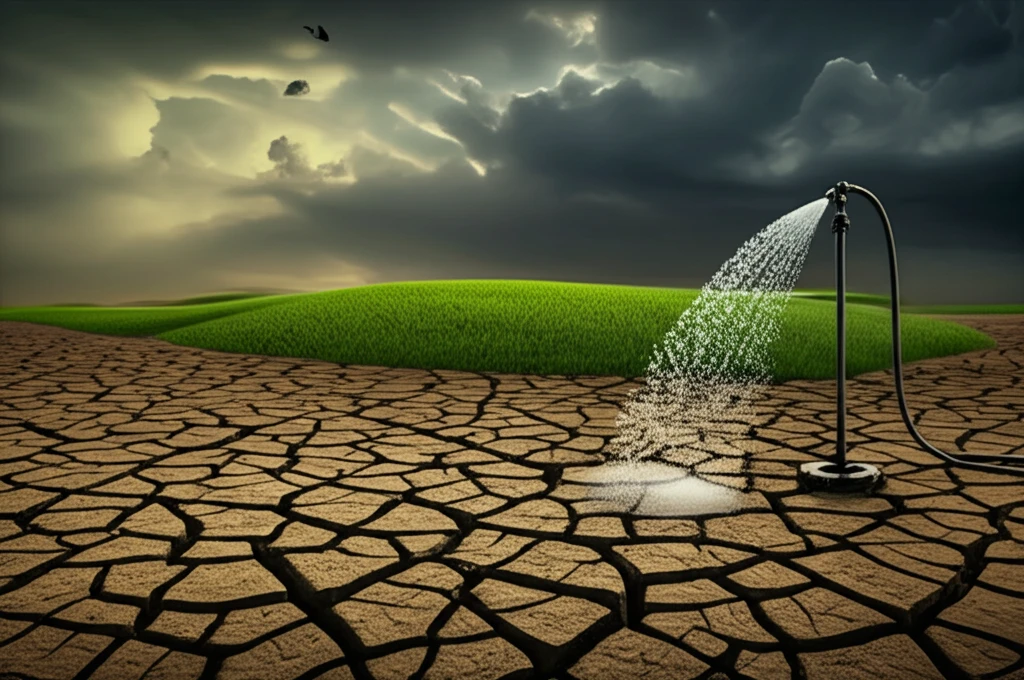
Is Your Irrigation Water Harming Your Crops? What Every Gardener Needs to Know
"Uncover the hidden dangers in your irrigation water and learn how to protect your plants from salt damage with our comprehensive guide."
In Brazil and worldwide, agriculture is a thirsty business, consuming more water than homes, herds, and factories combined. This is often because unpredictable rainfall, scorching temperatures, and thirsty soils demand extra irrigation. But what if the water you're using to nourish your plants is secretly harming them?
It's not just about having enough water; it's about having the right kind of water. Water quality, specifically its chemical makeup, is crucial for successful irrigation. Using the wrong water can lead to soil degradation and reduced crop production. This is especially true in semi-arid regions where the salt content in both surface and groundwater can be dangerously high.
That's why researchers are constantly monitoring water sources to understand their quality and potential impact on agriculture. One such study focused on an Amazon well in Catolé Do Rocha, Paraíba State, Brazil, a semi-arid region where water quality is a major concern.
The Secret Salt Threat: What the Study Revealed

The study, conducted from January to December 2017, tracked the electrical conductivity and the levels of various ions (such as calcium, magnesium, sodium, potassium, chloride, etc.) in the well water. Electrical conductivity is a measure of how easily electricity flows through water, and it increases as the salt concentration rises. The researchers found that the electrical conductivity of the water increased by a concerning 30.3% during the study period.
- Salt buildup in the soil can damage plant roots and prevent them from absorbing water and nutrients effectively.
- High sodium levels can disrupt soil structure, making it difficult for water to penetrate and for plants to establish a strong root system.
- Certain ions, like chloride, can be directly toxic to plants at high concentrations.
- An imbalance of nutrients can lead to deficiencies and stunted growth.
Protecting Your Garden: Simple Steps You Can Take
The study's findings underscore the need for regular monitoring of irrigation water quality, especially in regions prone to water scarcity. By understanding the salt content and ionic composition of your water, you can make informed decisions about irrigation practices and take steps to protect your plants from potential harm. So, before you water your garden, consider what’s really in your water and how it might be affecting your green space.
